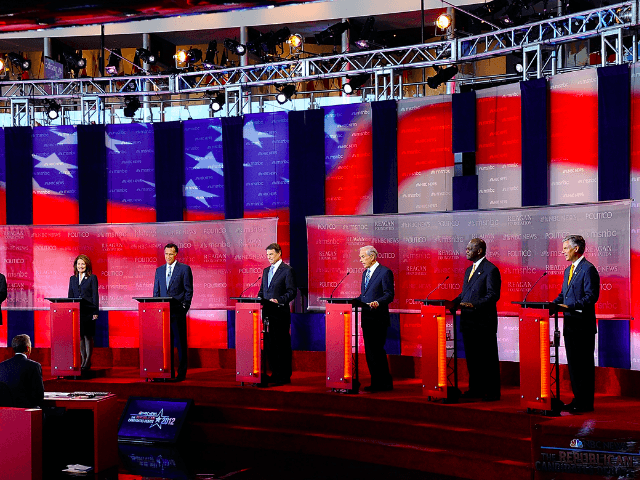Several Republican presidential candidates have already reacted to the Iran deal by declaring that they will “terminate” it immediately upon reaching office. That may be an effective way of conveying the depth of GOP opposition to an agreement that facilitates Iran’s emergence as a regional hegemon and potential nuclear power. It is also a constitutionally valid policy, since President Barack Obama has absurdly declared that the Iran deal is an executive agreement, and not a treaty, to minimize scrutiny and opposition. It is not, however, the best response.
For one thing, it lacks credibility. If the U.S. backs out of the deal, Iran will do the same, citing passages in the text of the agreement that allow it to do so. Iran will then race towards a nuclear weapon, boosted by the many freebies the deal will already have given them, such as assistance with research at the underground Fordow facility. A pledge by a presidential candidate to tear up the Iran deal is effectively a pledge to trigger a nuclear crisis that will lead to war. That is a result of the shoddy way in which the deal is written, but it is also the truth.
The other problem with a pledge to tear up the deal after it takes effect is that repeated reversals in U.S. foreign policy damage our credibility as global leaders. It was bad enough that Obama abandoned Iraq after a hard-won victory, and that he failed to enforce his own “red lines” against Syria’s use of chemical weapons. It will compound the damage if Obama’s successor pulls another reversal, sending the message that U.S. foreign policy is subject to the vagaries of domestic politics. Obama has set a terrible example; that is no reason to make it a precedent.
A more effective and credible response for an aspiring Republican candidate would be to declare that if the deal passes, as bad as it is, he or she reserves the right to act immediately and unilaterally to punish any Iranian violation, no matter how minor, through military action if necessary. If Obama believes that the deal is as good as he says it is, he will have little grounds to object. It will also give Democrats reason to consider–now–whether the deal’s provisions really are as strong as advertised, or whether they might trigger a dangerous confrontation.
Meanwhile, Republican candidates should work hard to help defeat the deal in Congress–the last chance to stop Obama’s appeasement. They should also articulate a fallback option if the deal fails to pass, such as: maintaining U.S. sanctions (which are still powerful even in the absence of international cooperation); preserving the arms embargo and the ballistic missile restrictions; offering explicit assistance to U.S. allies in the region; and moving U.S. forces into position to renew the potency of the “military option” that Obama still pretends to preserve.

COMMENTS
Please let us know if you're having issues with commenting.